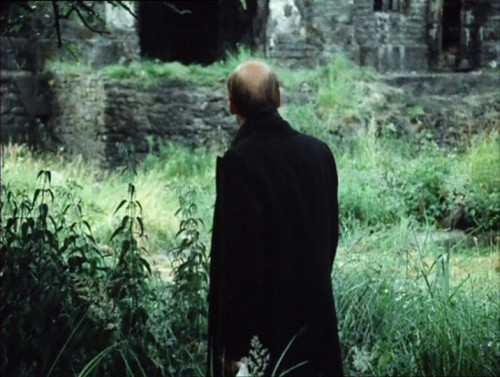A few weeks ago (April 30 – May 2, 2015), I had the pleasure of attending one of the most engaging conferences I have been to in recent memory: “After Extinction,” hosted by Richard Grusin and the Center for 21st Century Studies at the University of Wisconsin-Milwaukee. I’ll be posting my talk, “Post-Cinema After Extinction,” when I get a chance (so stay tuned…), but in the meantime I wanted to pull together all of the plenary talks (which, thankfully, were archived on video). As you’ll see in these talks by William Connolly, Joanna Zylinska, Daryl Baldwin, Joseph Masco, and Cary Wolfe, the conference brought together a diverse range of voices and perspectives and created space for an interesting and wide-ranging conversation about the conditions of life at our precarious moment.
Tag: ecology
Video: Post-Cinema and/as Speculative Media Theory, Part 4: Adrian Ivakhiv, “Speculative Ecologies of (Post)Cinema” — #SCMS15
Above, Adrian Ivakhiv’s talk “Speculative Ecologies of (Post)Cinema, or, The Art of Morphogenesis: Cinema in & beyond the Capitalocene” — the fourth of five videos documenting the “Post-Cinema and/as Speculative Media Theory” panel I chaired on March 27, 2015 at the Society for Cinema and Media Studies annual conference in Montreal.
See here for more information and a general introduction to the panel.
Up next: Mark B. N. Hansen. Stay tuned!
Adrian Ivakhiv’s ecocritical film-philosophy
 Adrian Ivakhiv, Associate Professor of Environmental Studies at the University of Vermont, maintains the excellent blog immanence, where he posts regularly on “the Form, Flesh, and Flow of the World : Ecoculture, Geophilosophy, Mediapolitics” (as he puts it in the blog’s byline).
Adrian Ivakhiv, Associate Professor of Environmental Studies at the University of Vermont, maintains the excellent blog immanence, where he posts regularly on “the Form, Flesh, and Flow of the World : Ecoculture, Geophilosophy, Mediapolitics” (as he puts it in the blog’s byline).
Recently, he linked to a new article of his in the open-access online journal Film-Philosophy (published by the great Open Humanities Press), in a special issue on “Phenomenology and Psychoanalysis.” Here is the abstract of Ivakhiv’s paper, which is certainly worth reading in full:
The Anthrobiogeomorphic Machine: Stalking the Zone of Cinema
This article proposes an ecophilosophy of the cinema. It builds on Martin Heidegger’s articulation of art as ‘world-disclosing,’ and on a Whiteheadian and Deleuzian understanding of the universe as a lively and eventful place in which subjects and objects are persistently coming into being, jointly constituted in the process of their becoming. Accordingly, it proposes that cinema be considered a machine that produces or discloses worlds. These worlds are, at once, anthropomorphic, geomorphic, and biomorphic, with each of these registers mapping onto the ‘three ecologies,’ in Felix Guattari’s terms, that make up the relational ontology of the world: the social, the material, and the mental or perceptual. Through an analysis of Andrei Tarkovsky’s Stalker (1979), I suggest that cinema ‘stalks’ the world, and that our appreciation of its potentials should similarly involve a kind of ‘stalking’ of its effects in the material, social, and perceptual dimensions of the world from which cinema emerges and to which it returns.
Keywords:
Film theory; film-worlds; ecocriticism; ecologies; Tarkovsky
Beyond this paper, Ivakhiv is working on a book called Ecologies of the Moving Image, which I very much anticipate reading. Indeed, in many respects, Ivakhiv seems a kindred spirit of sorts in his process-relational philosophical orientation and his endeavor to formulate a non-anthropocentric philosophy of film. With his notion that the cinema is one of the places “in which subjects and objects are persistently coming into being, jointly constituted in the process of their becoming,” Ivakhiv’s views seem largely apposite with my own film-theoretical project, which, as I summarized (in German) recently, seeks a “rapprochement between the conflicting human and nonhuman agencies inhabiting [Frankenstein] films” and the cinema in general. As I outline it in Postnaturalism: Frankenstein, Film, and the Anthropotechnical Interface, this “rapprochement […] consists […] of a recognition of the mutual articulation of experience by human and nonhuman technical agencies, whereby the affective and embodied experience of anthropotechnical transitionality is not arrested and subjugated to human dominance, but approached experimentally as a joint production of our postnatural future” (24). Ivakhiv’s proposal “that cinema be considered a machine that produces or discloses worlds” seems, in my opinion, to point in the same – experimental and postphenomenological – direction.
